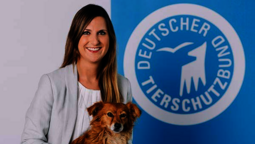In the view of the German Animal Welfare Federation, new regulations for the transportation of live animals by ship to countries outside Europe, as envisaged by the EU, are inadequate. The federation criticizes the fact that the recently adopted implementing regulation only provides for minimal improvements and continues to call for a fundamental ban on transports.
"Even if it were to be implemented consistently, the planned regulation would only be able to cut the biggest spikes in abuses. However, the massive animal welfare problems associated with ship transports will not change. Instead of superficial cosmetic repairs, we need a consistent ban on cruel transports," says Frigga Wirths, specialist for animals in agriculture at the German Animal Welfare Federation.
ANIMALS SUFFER ON BOARD
For the animals, transportation on a ship is always associated with agony and suffering. Before the cattle and sheep are loaded onto ships, they have already endured a long journey on the road. "The extreme conditions on the ships are an additional burden for the weakened animals: Rough seas, agonizing cramped conditions, heat, noxious gases and high humidity make the transport an ordeal," says Wirths. The German Animal Welfare Federation also criticizes the fact that neither a vet nor trained personnel are required to be on board during the journey. Animal protection is also not guaranteed at the destination: "The worst mistreatment occurs during unloading, further transportation and slaughter," says Wirths.
REQUIREMENTS ARE INADEQUATE
In its current form, the implementing regulation stipulates, among other things, that the ships - unlike previously - must be approved for the number and type of animals being transported. Prior to approval, an inspection by a veterinarian and a technician is required. An inspection must be carried out before each journey. There must be an emergency plan and a supply station for the animals at the port. What is not taken into account is that there can always be delays on departure and it is not possible to care for thousands of animals at one port. Unplanned incidents and delays can also occur at sea during day-long crossings, meaning that there is a risk of water, food and bedding running out. The conditions for the animals on board will not change.
The implementing regulation is intended to supplement the current provisions of the EU Transport Regulation. The EU Commission adopted the draft regulation on February 17. The EU Parliament and EU Council now have two months to raise objections before the regulation enters into force in 2024. The drafting was prompted by accidents involving ships with loaded animals and a 2020 report by the EU Commission's Directorate-General for Health and Food Safety (DG Sante), which documented various shortcomings during transportation: from loading onto lorries and in port to shipping and arrival in the destination country.





